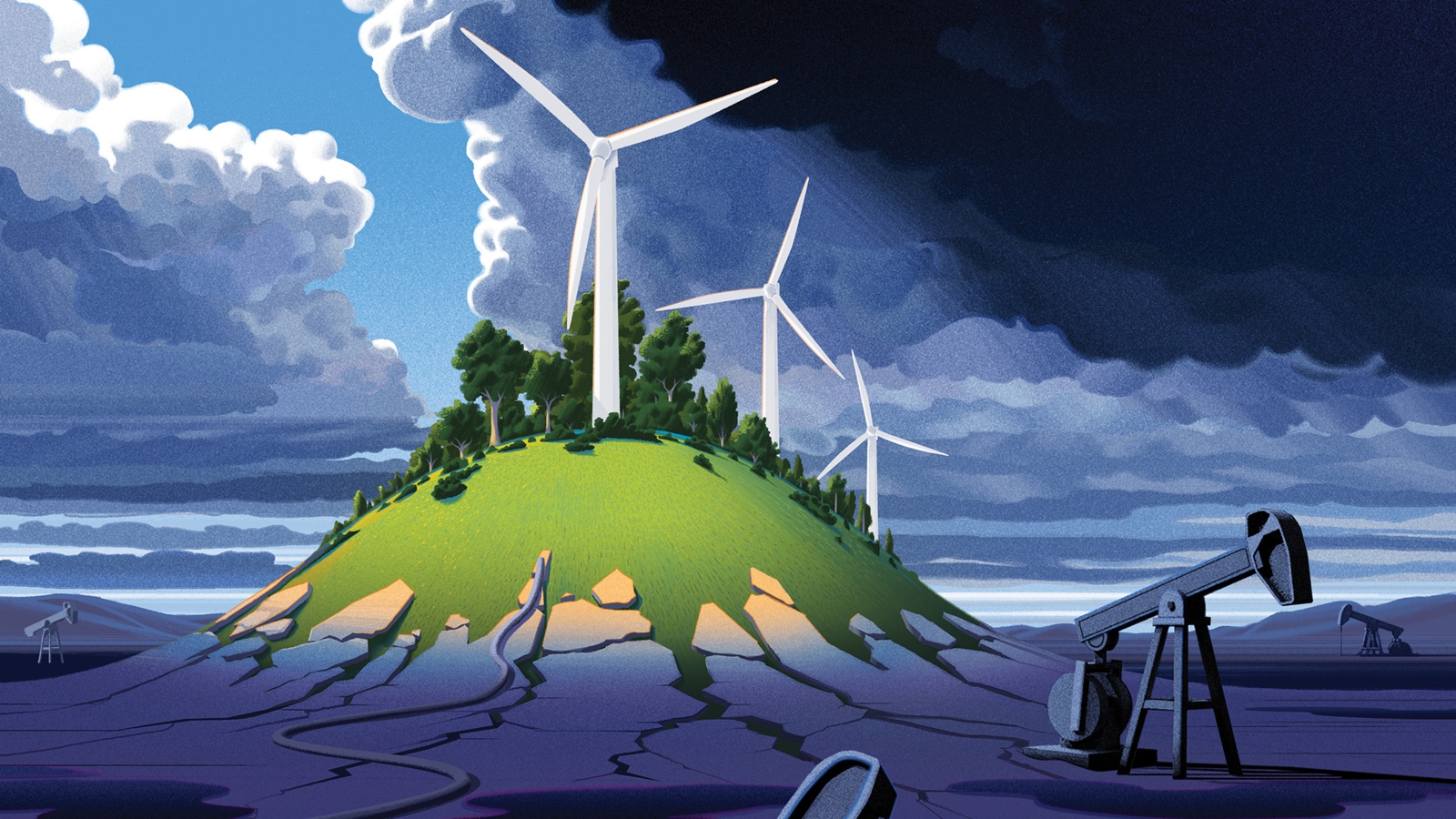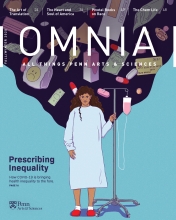Inveniemus viam aut faciemus
“We will find a way or we shall make one.”
- Inscription on the Class of 1893 Gate, University of Pennsylvania
In his book, Everything Was Forever Until It Was No More, anthropologist Alexei Yurchak wrote about an interesting puzzle. How was it, he asked, that Soviet citizens could insist that communism was forever in the 1980s, and then, just a few years later, find its collapse totally unsurprising? Moments of transition are often experienced through such fundamental disorientation. From Soviet communism to the British Empire, the rapid demise of crusty, aging political orders are often both unthinkable and expected.
Today, we may well be staring at the crumbling of a formidable political order that is built on oil.
Of course, for many, this is unthinkable. Over the last century, fossil fuel companies have shown that they are here forever. This is a story they want you to believe. Indeed, the story of their immense power, and the unthinkability of a transition to fossil free energy, are both key to the maintenance of a fossil fuel regime.
Yet, oil companies are more brittle than they appear. Their collapse will be ordinary and unsurprising. At Penn, in Philadelphia, and beyond, there are signs of revolution everywhere.
Fossil Free Penn has been demanding that Penn exercise its moral leadership to care for the futures of its students. In its occupations of College Hall, and at meetings of the Board of Trustees, students have relentlessly insisted that Penn divest from fossil fuel industries and the willful and catastrophic effects of climate change they produce. Because, as Greta Thunberg points out, “Why should any young person be made to study for a future when no one is doing enough to save that future?”
The students at Penn are part of a youth movement rising nationally and globally to demand that grown ups act like grown ups to secure their future. Middle-school and high-school students have joined college students at the Sunrise Movement to effectively put climate change, green energy transitions, and climate justice at the center of the national conversation in ways they never have been before. Students refuse the colonization of their future that fossil fuels present.
Not least because youth are the future consumers, citizens, and voters, others are slowly catching on. Institutional investors—both in universities and beyond—have only now begun to act on the knowledge that fossil fuel industries pose both a threat to the planet and also present significant financial risk (for of course the former entails the latter). In January of this year, Blackrock Capital, the world’s biggest fund manager, announced it would reduce its exposure to fossil fuel industries.
In May, the University of California became the largest university system to announce that it had fully divested its $126 billion portfolio from fossil fuels, insisting that this was not just an environmental decision, but also a financial one.
In an article published by the Los Angeles Times, Richard Sherman, Chair of the UC Board of Regents’ investments committee, pointed out that “as long-term investors, we believe the university and its stakeholders are much better served by investing in promising opportunities in the alternative energy field rather than gambling on oil and gas.”
Their concerns around the ethical and financial futures of oil have since been validated amidst the hurricanes, pandemics, and fires of this summer. Early in the COVID-19 pandemic, oil futures turned negative for the first time in history. More generally, stocks of fossil fuel energy companies have dropped by as much as 50 percent since the start of this year.It is not just that we are beginning to see the end of oil as promising investment. Oil is not forever also because its aging, toxic infrastructures are falling apart. Refineries are leaky, dangerous and increasingly expensive to maintain. In Philadelphia, as in Houston, or in the Gulf of Mexico, they present significant dangers to citizens, ecologies, and employees alike.
In June 2019, the Philadelphia Energy Solutions Refining Complex—one of the world’s oldest, operating since 1870—exploded, “sending a bus-sized piece of debris across the Schuylkill river”. Amidst the fires that burned for hours, the refinery released over 3,000 pounds of hydrogen fluoride, a powerful neurotoxin, that would have injured thousands in the city if the winds were simply blowing in a different direction. For Philadelphia residents and the Penn community it was “a close call,” in the words of a City of Philadelphia report assessing the event.
Both prior to and in the wake of the explosion, organizers at Philly Thrive, a grassroots, community-based organization, have worked around the refinery, insisting on the “Right to Breathe” in fenceline communities. Last year, they successfully demanded that the toxic refinery be permanently closed, and for this city that has built on oil to transition to a green economy.
These and many other examples show how students, activists, and marginalized residents of Philadelphia are working to build futures that challenge the certainties of oil these past decades, and with great effect.
Oil is not forever. Our future demands it be put to rest. And, as members of the Penn community—as its students, parents, teachers, administrators, and alumni—we must find and create ways to make climate justice central to the world that comes next.
Nikhil Anand is Associate Professor of Anthropology and an affiliated researcher at the Penn Program for Environmental Humanities.




